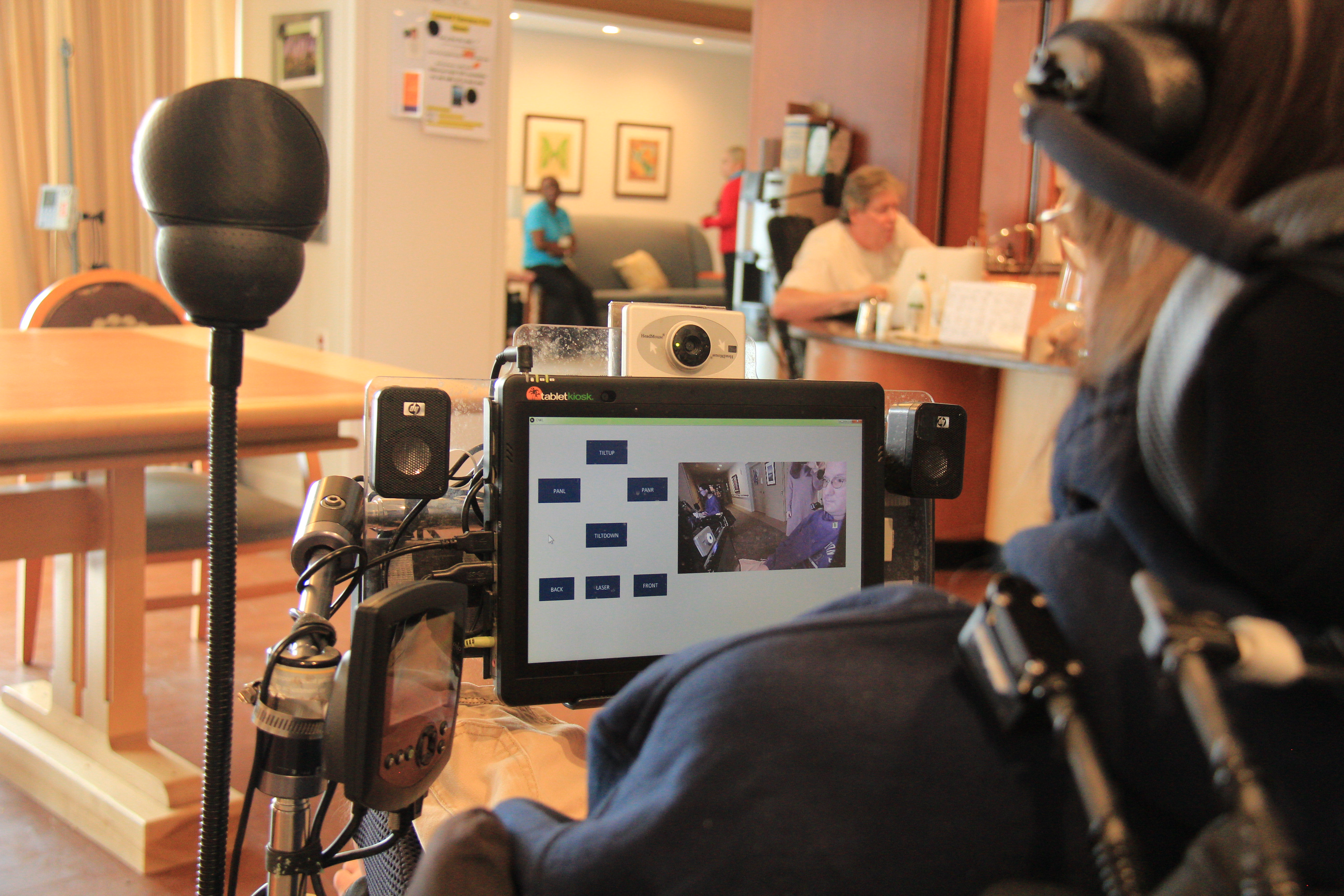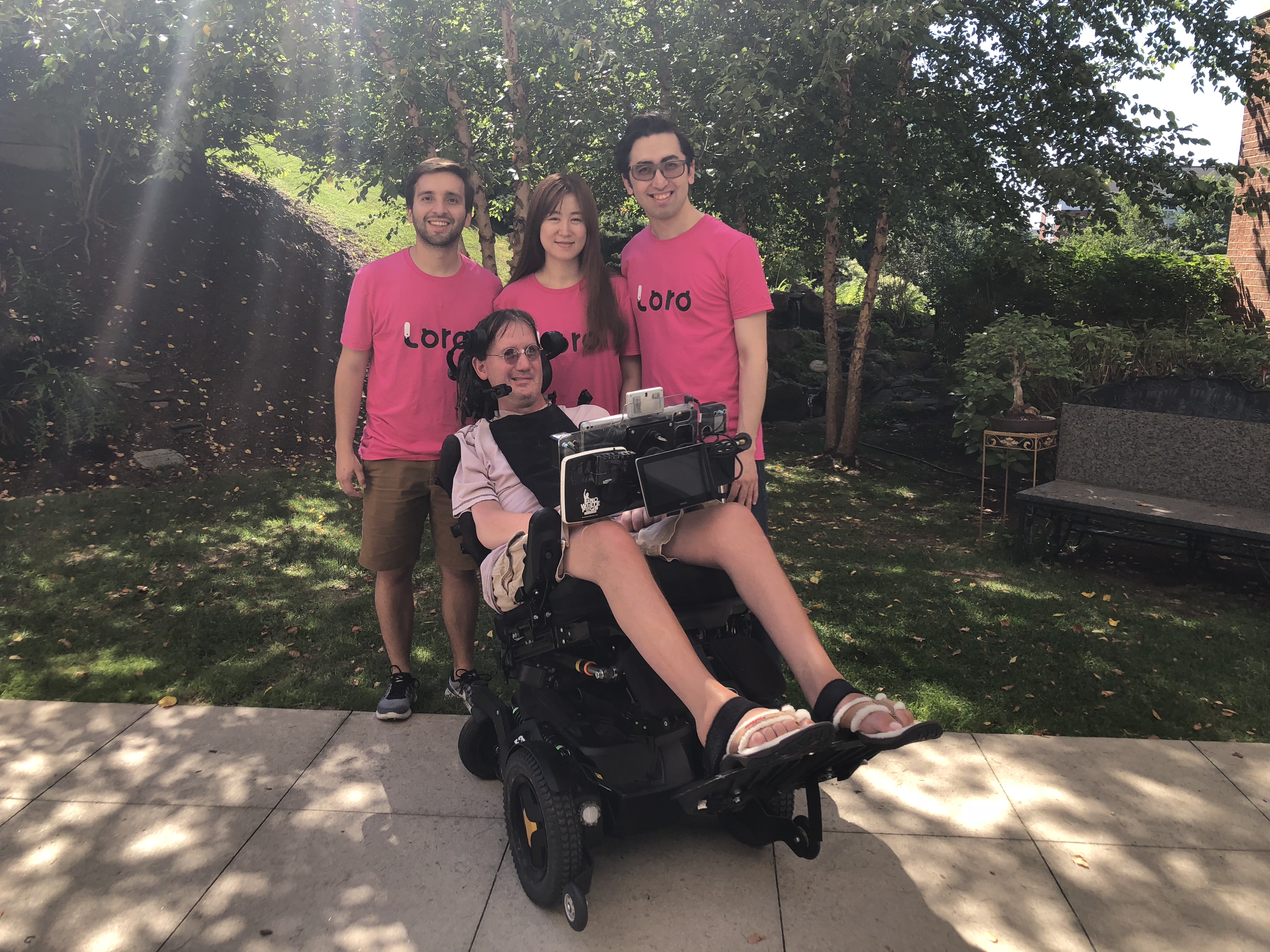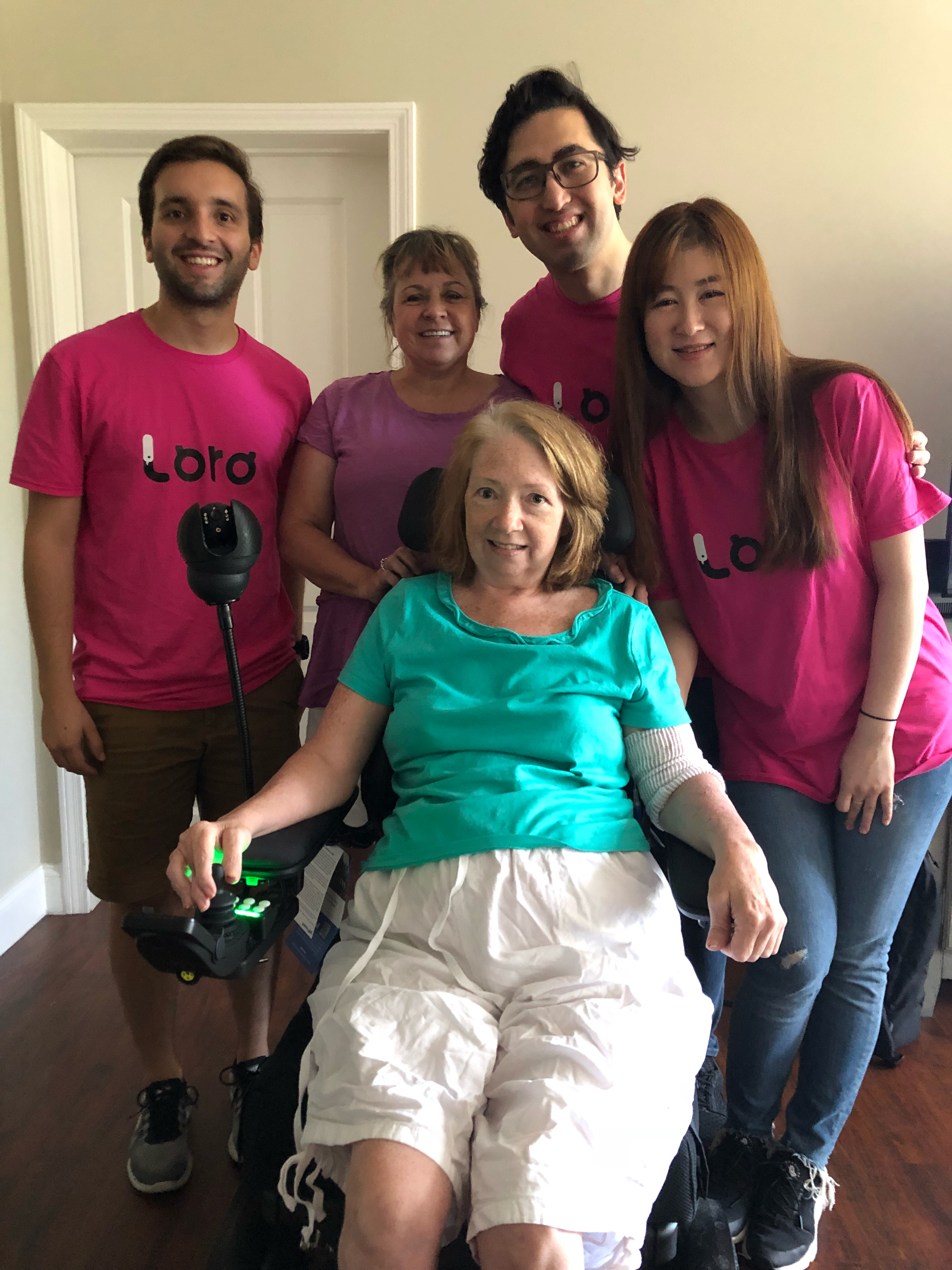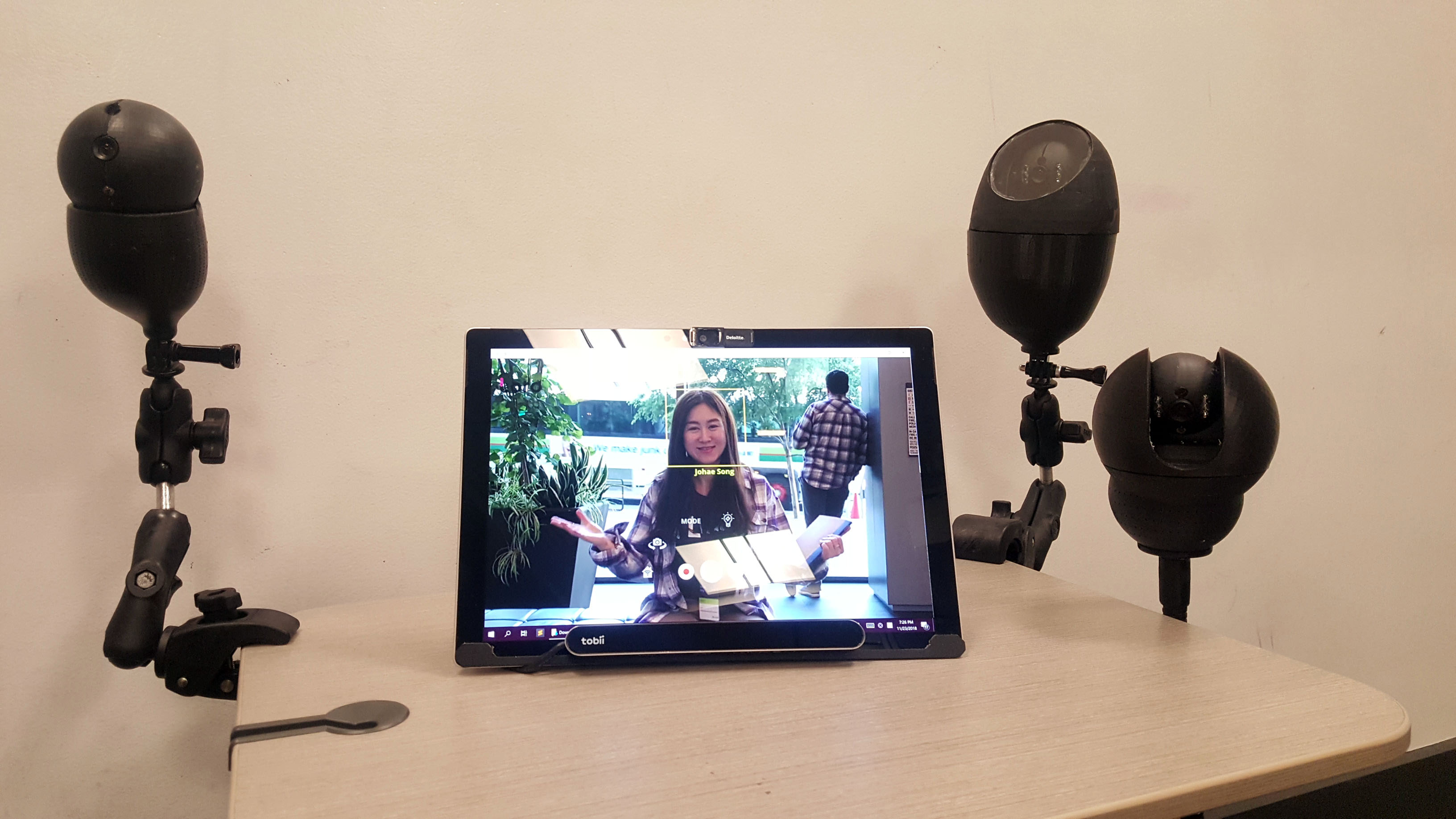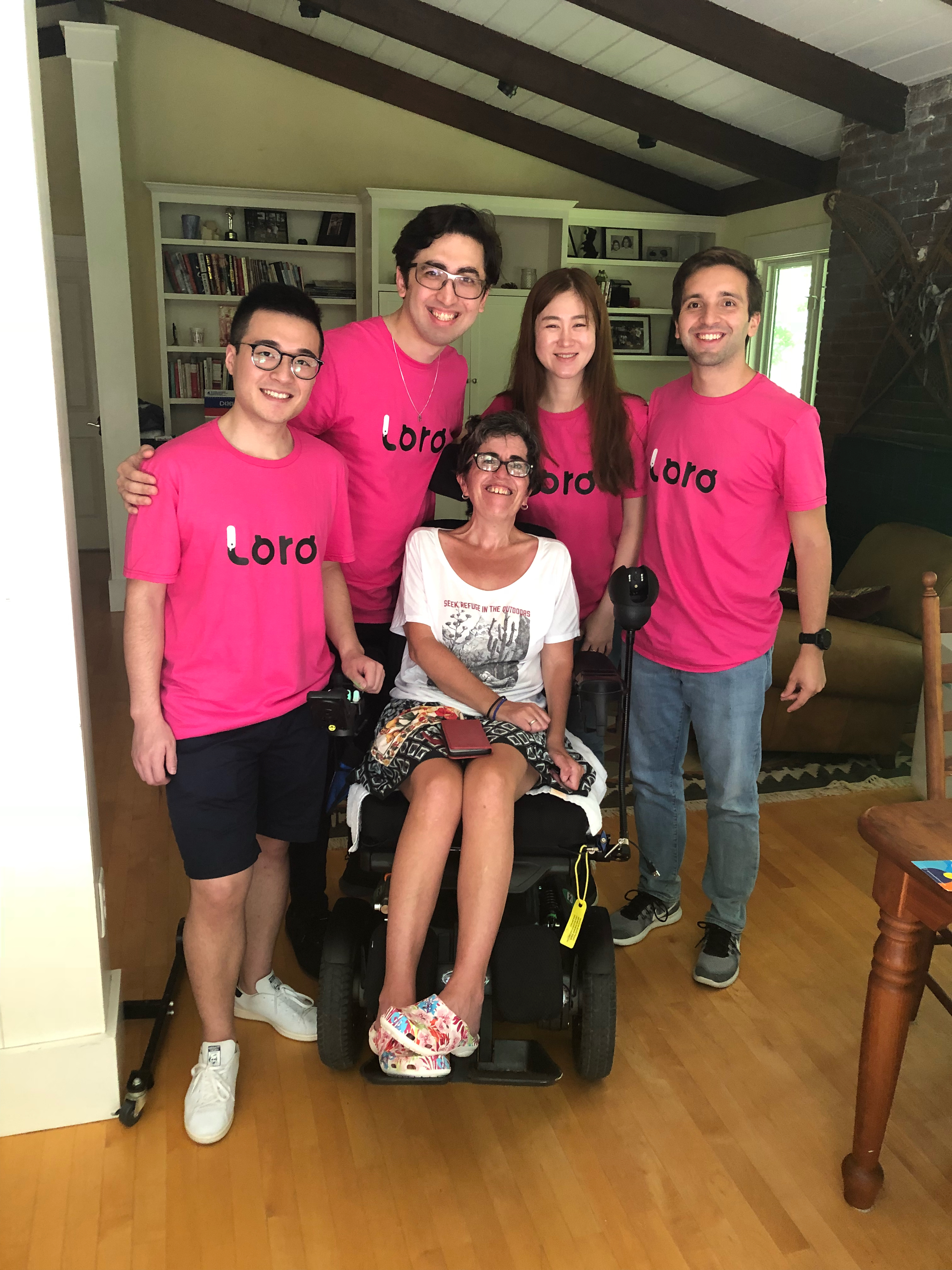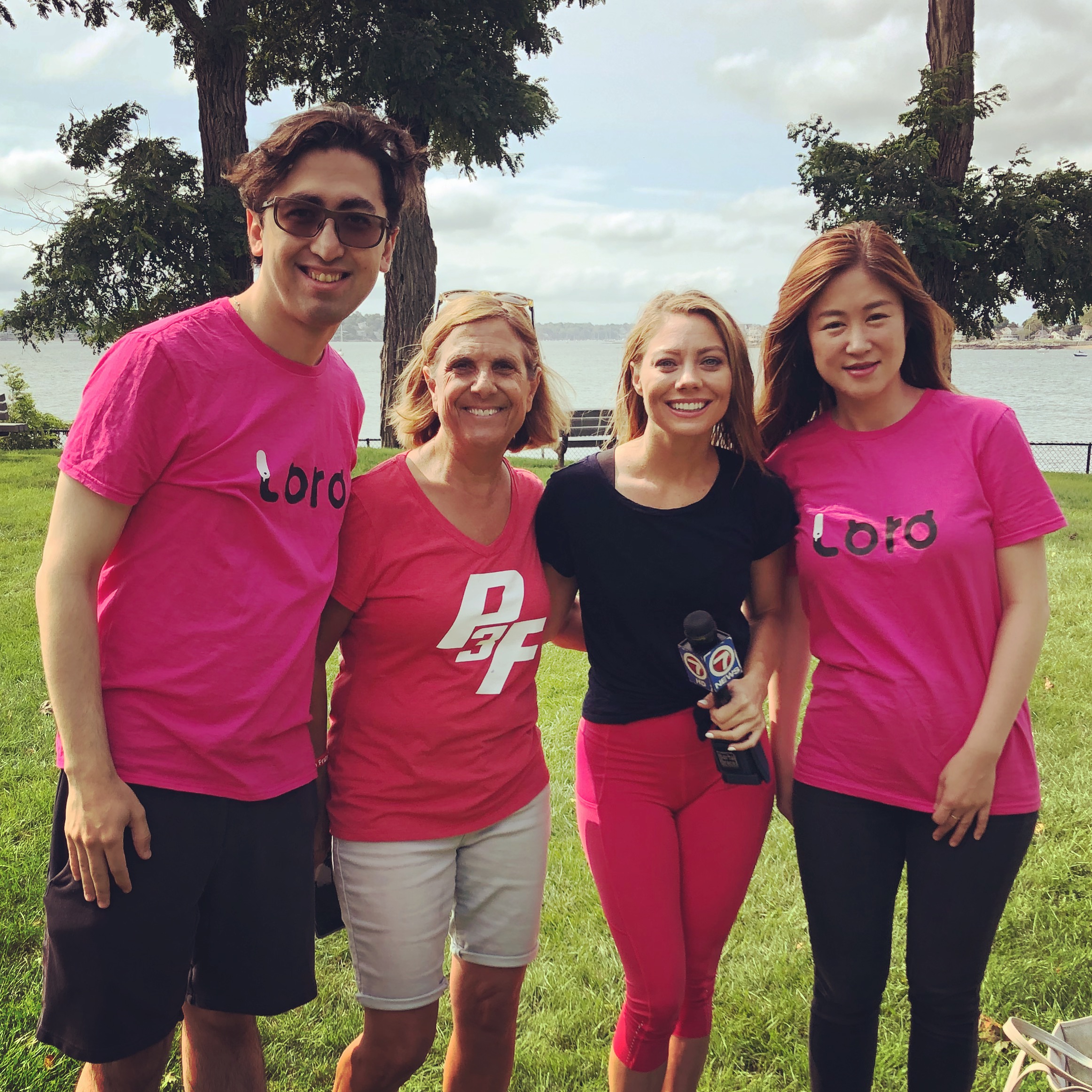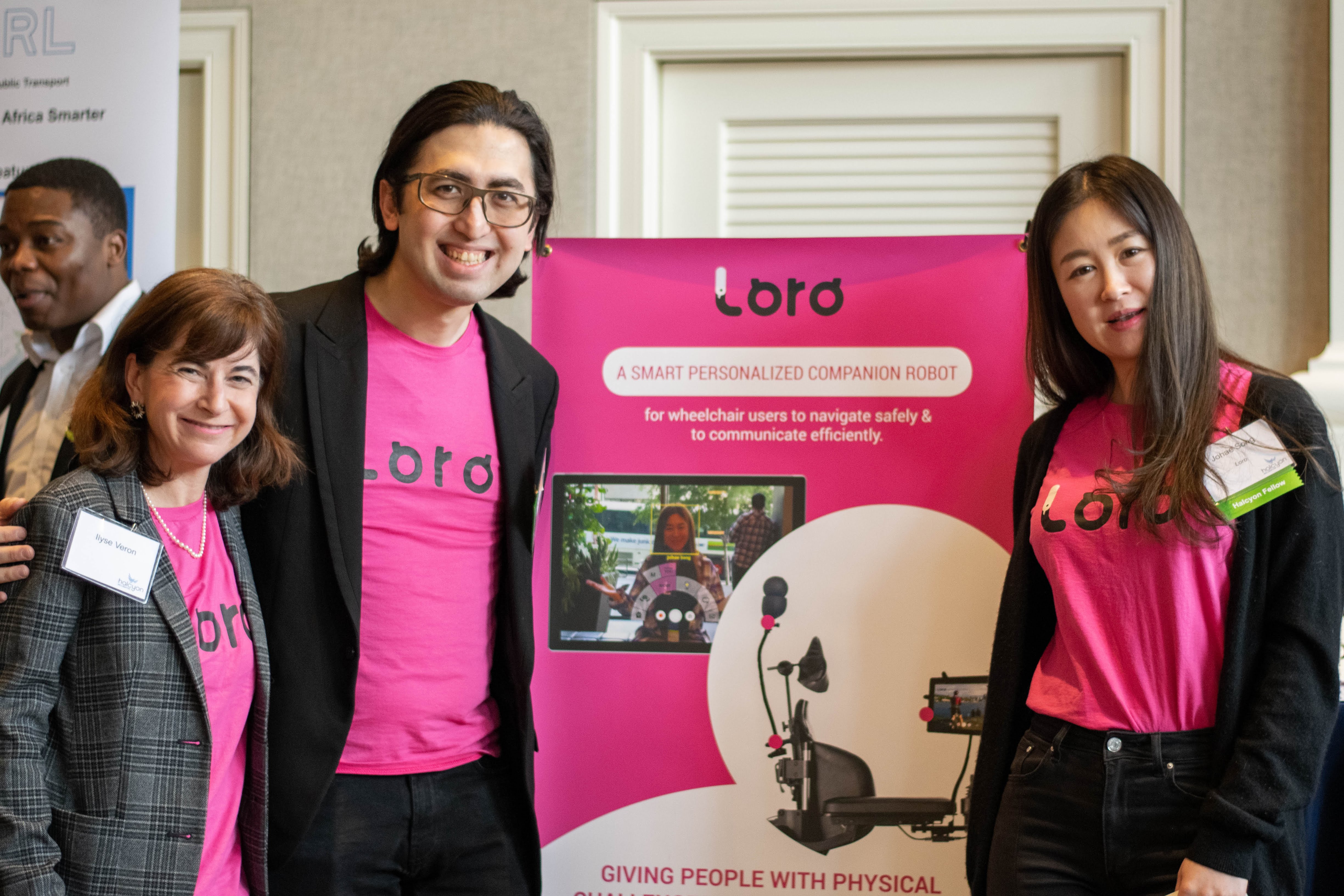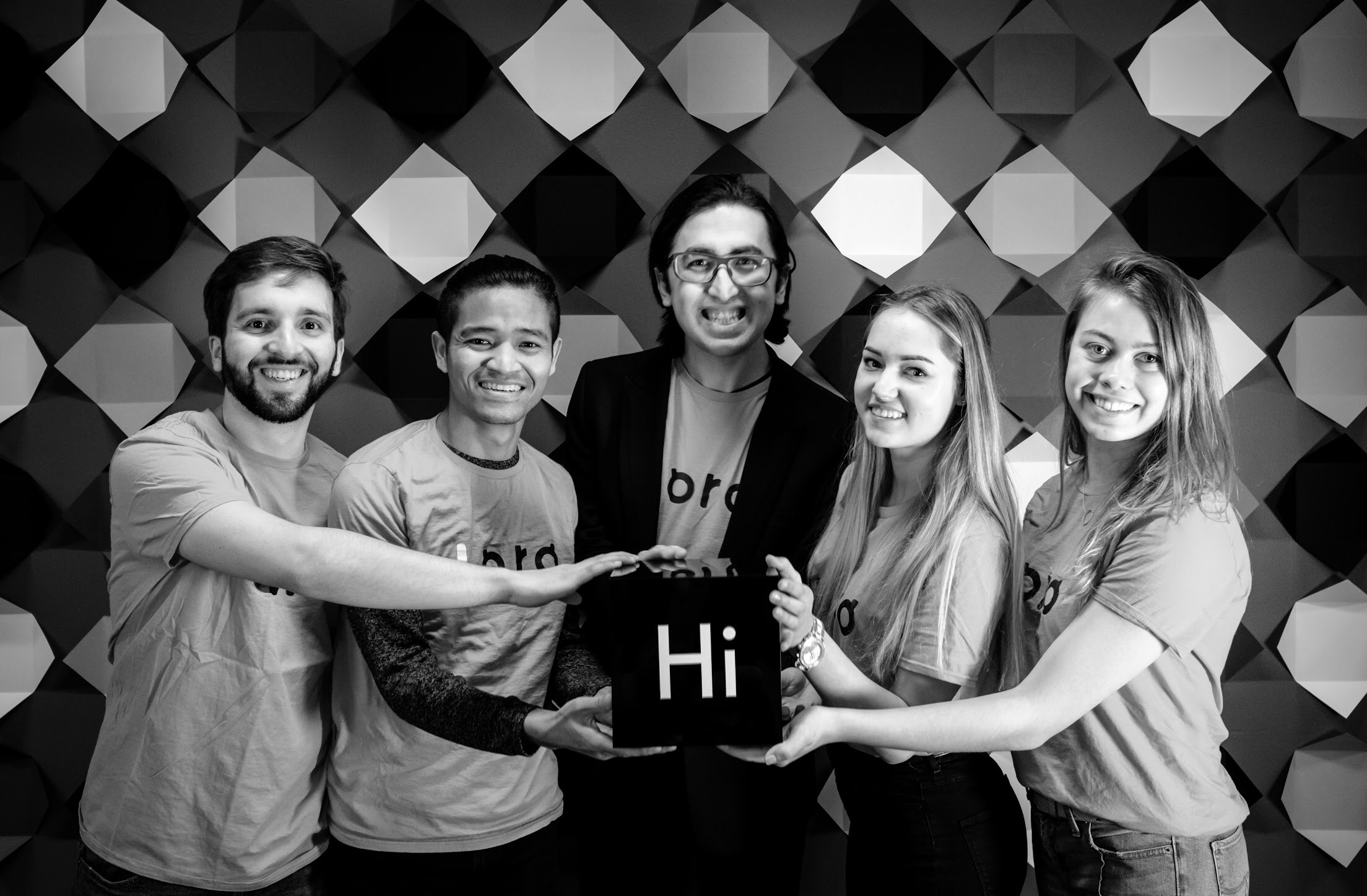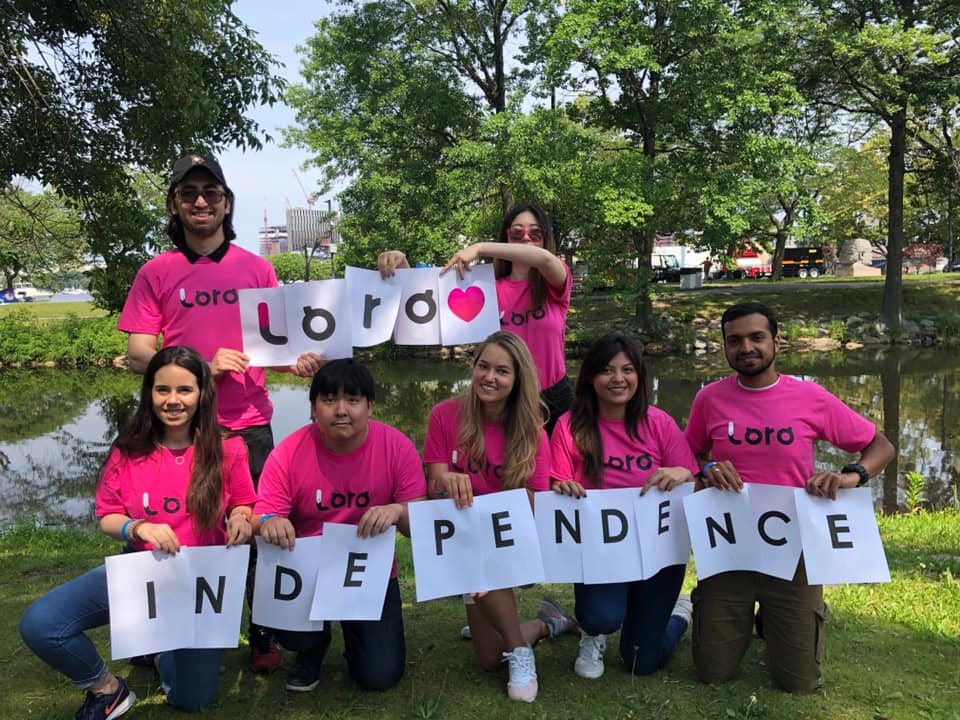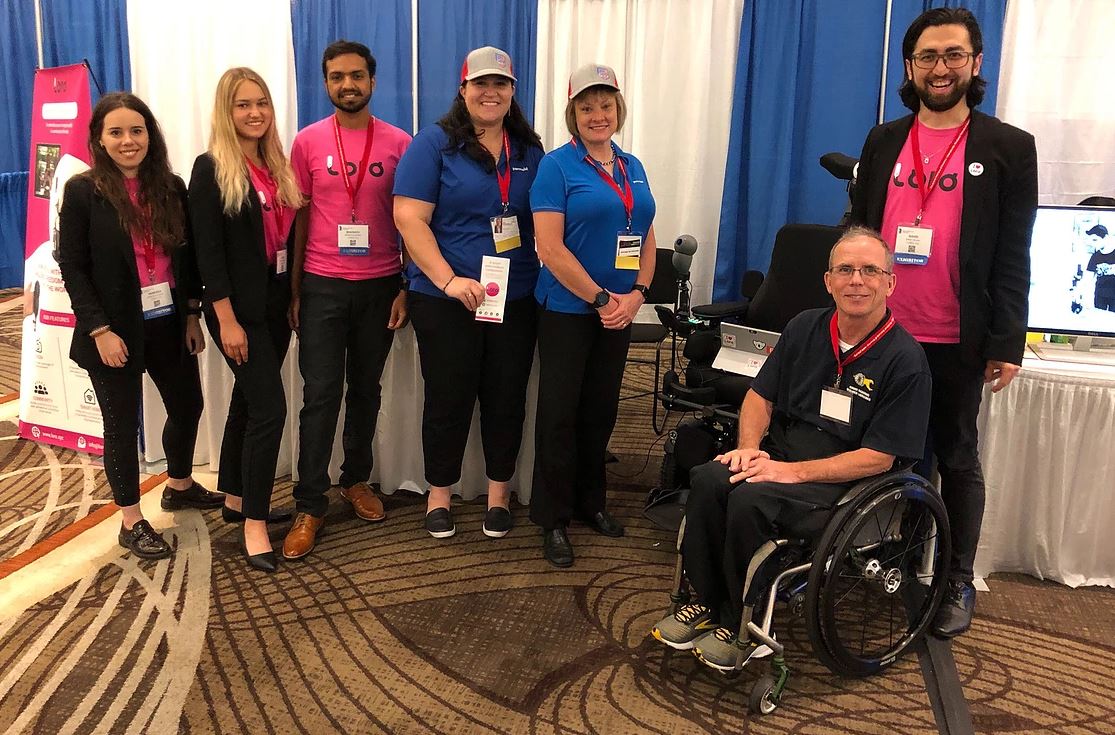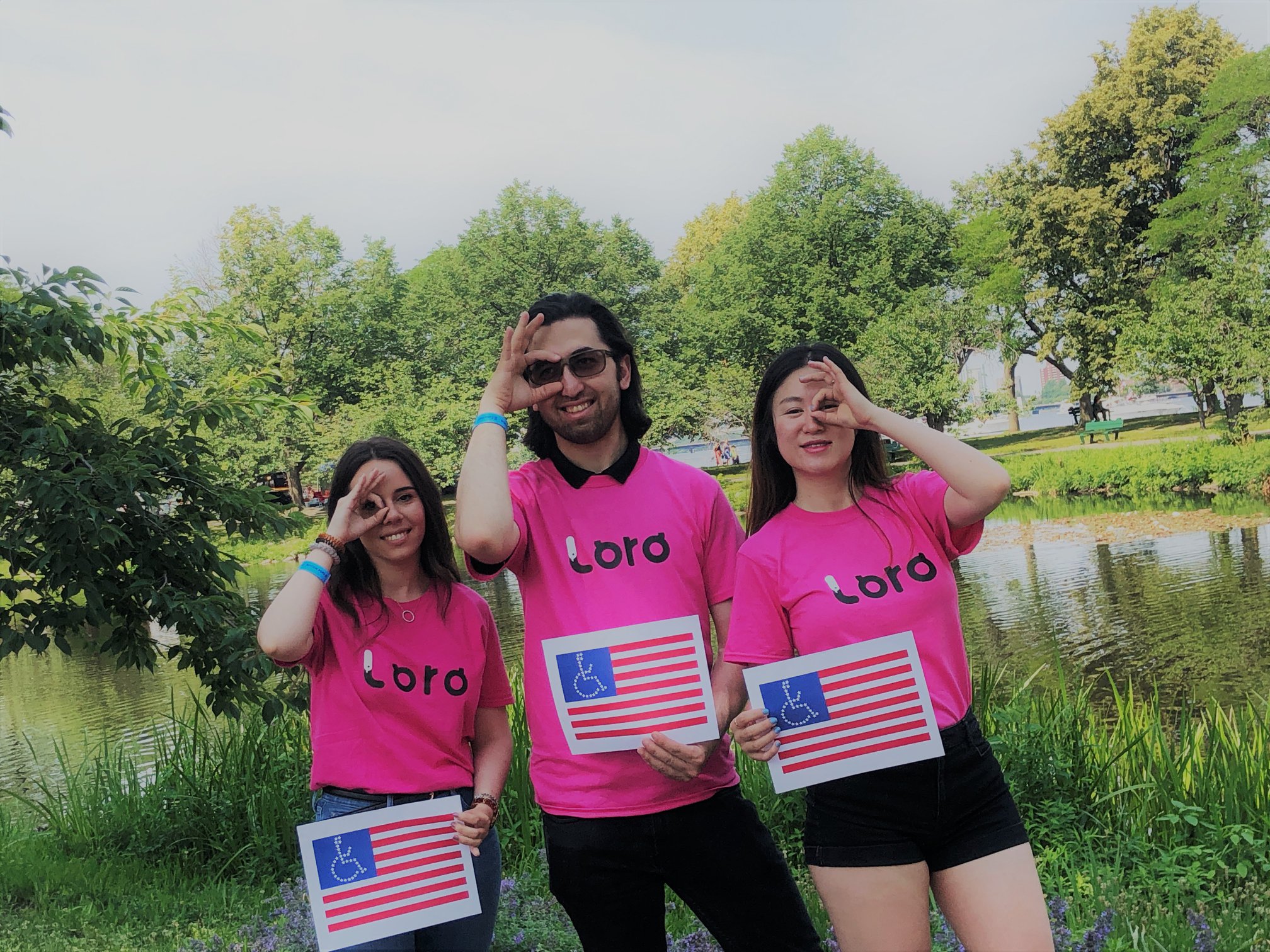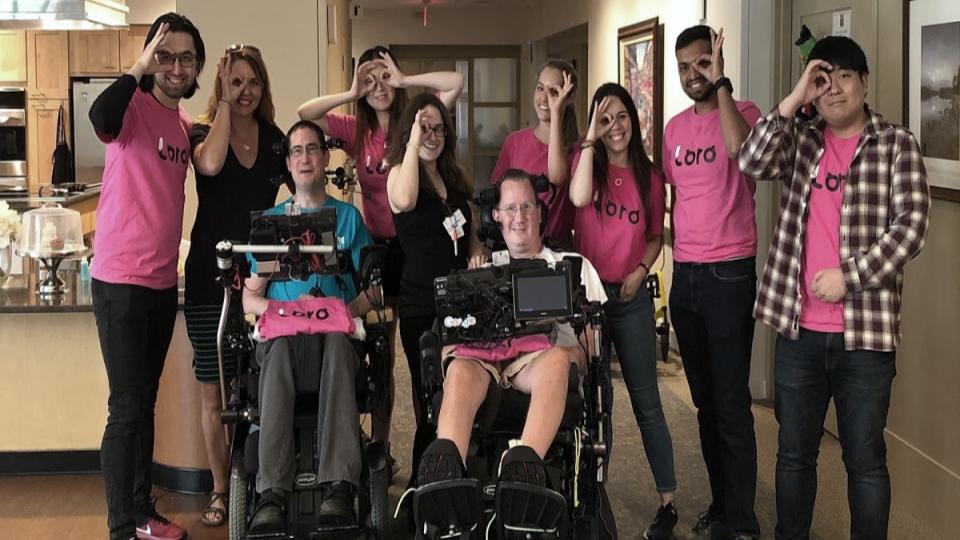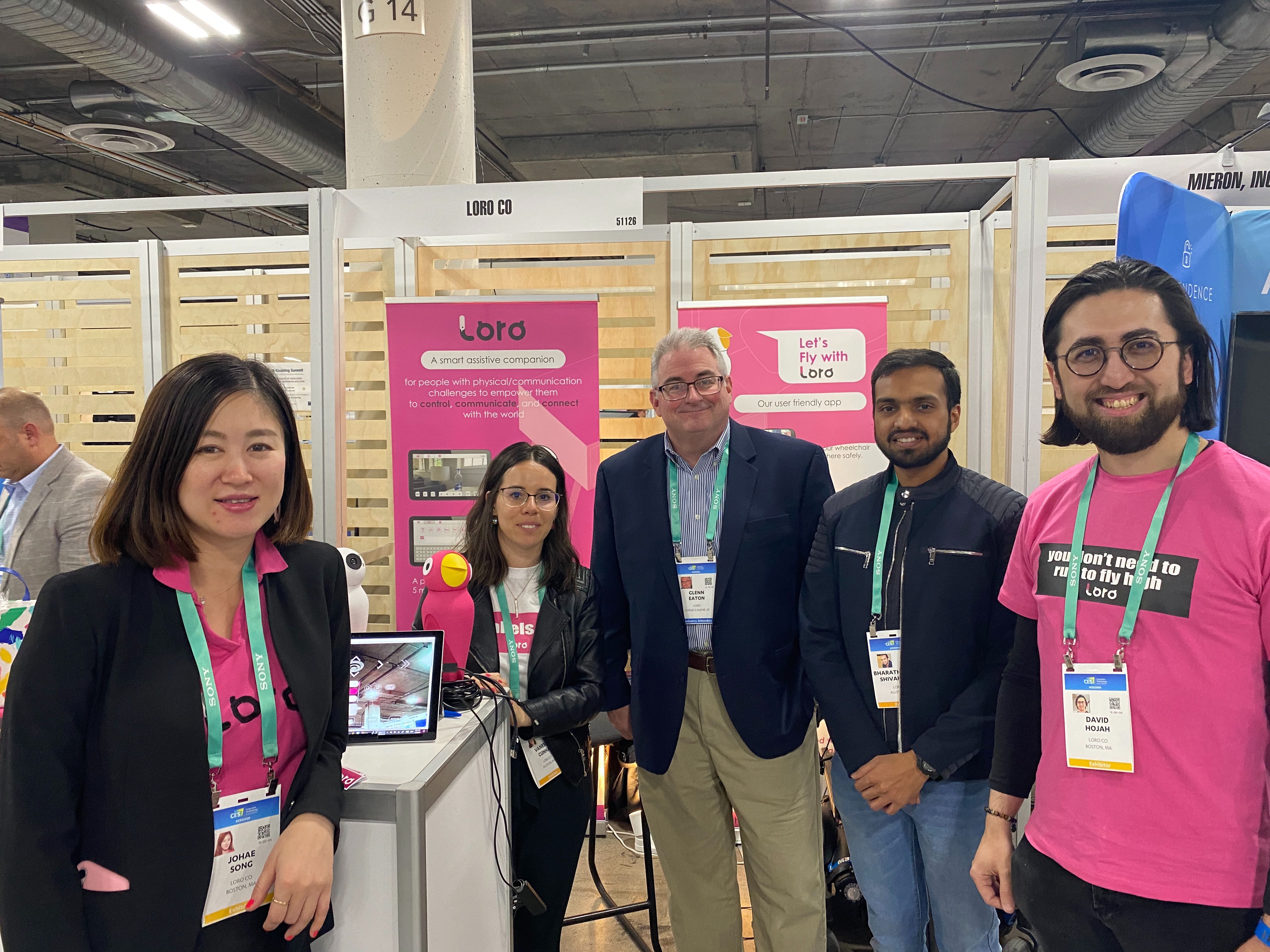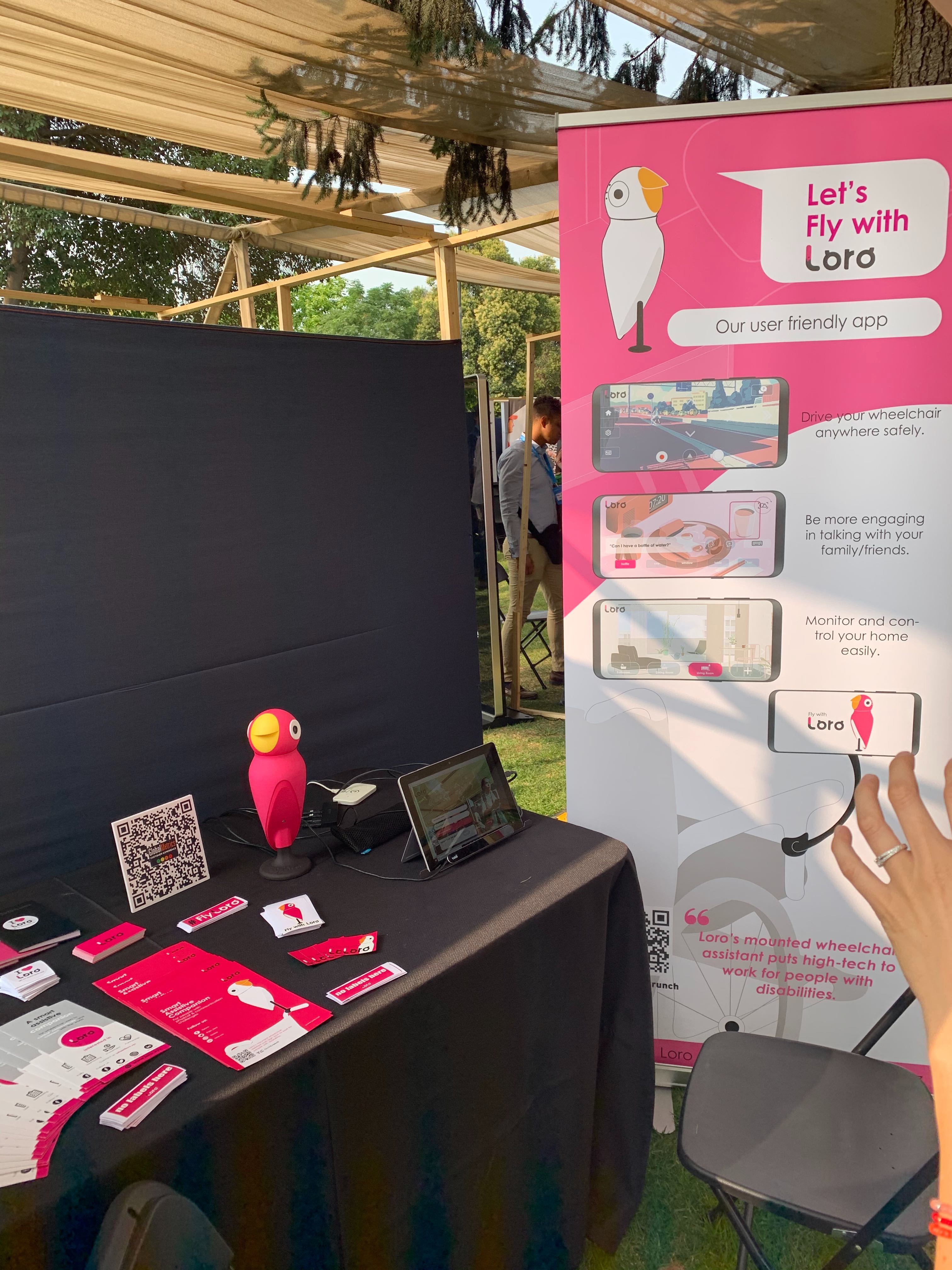Loro
PUBLIC
United States, Harvard University and MIT
Team Gallery
Project Overview
Around 70 million people require wheelchairs worldwide. They suffer from physical barriers, social exclusion, health and safety concerns, all of which have psychological impacts. In addition to using a wheelchair, people with disabilities such as ALS, Multiple Sclerosis or Spinal Cord Injuries experience even more limited connection with their environments due to their lack of upper extremity and neck mobility. This leads to a significant decrease in people’s fields of vision, speech, or ability to point: these patients face significant challenges to communicate.
The lack of suitable assistive technologies to help them navigate safely inspired us to work to break down the barriers of social exclusion and help them increase their independence. We present the development of an augmentative system, Loro, for people with movement disabilities (mostly ALS, MS, Parkinson's, MD, SCI or CP people) to communicate with their loved ones and to enrich their interaction with the world around them, fundamental to successful social integration.
Loro is an AI-powered smart, personalized companion for wheelchair users to navigate safely and to communicate efficiently. A person with physical challenges can’t interact with the world the same way as the able, but there’s no reason we can’t use tech to close that gap. Loro is an assistive robot that mounts to a wheelchair and offers its occupant the ability to see and interact with the people and things around them in powerful ways, just like a parrot to be your friendly companion on your shoulder. Loro will enhance physical abilities by empowering users with more than one way to interact with their environments and how they communicate with their loved ones.
Loro is a connectivity hub that provides a smart companion robot for people with mobility challenges such as (ALS, Multiple Sclerosis, Parkinson's, Muscular Dystrophy, Spinal Cord Injuries, Cerebral Palsy). Loro integrates several technologies including a universally mountable 360 camera, laser pointer, flashlight, alarm system, text-to-speech, speech-to-text, and user-friendly interface. Loro leverages artificial intelligence, cognitive services, and AI voice assistants. Also, Loro can help people with speech or hearing impairments to be recognized by face, voice or objects recognition, and auto speech platform. Users can control Loro through any type of inputs devices and ability switches such a joystick, chin, eye-tracking, a head-mouse or a touchscreen app. Loro is designed to be compatible and inclusive and intuitive with multiple platforms including mobile devices, smartphones, tablets, to smart homes devices and security cameras.
Moreover, Loro works in auto-mode to detect objects and identify people, the environment, and obstacles. Loro is designed to provide users with an intelligent camera, safe navigation, health monitoring, social interaction, and smart home connectivity.
Efficient mobility and communication are a prerequisite to carrying out many daily activities and for social inclusion. Loro's mission is providing physical, social and emotional benefits to its users and their environments. Loro empowers users to be more independent, experience greater feelings of security, social integration, and autonomy, enabling higher participation in the community. All of these benefits will impact family members, loved ones, caretakers and user dynamics.
Please visit our website: https://www.loro.xyz/
See our video: https://www.youtube.com/watch?v=CE79wnkNNXY&feature=youtu.be
About Team
Our team is a diverse group of engineers, designers, and entrepreneurs who share a passion for helping others. Our core team consists of three graduate students and one undergraduate student, each of whom has niche expertise, covering mechanical engineering, business, engineering management, product design, biomedical engineering, and web design.
Our members are affiliates of Harvard University and MIT:
1- Johae Song, MS in Design Technology, Harvard University.
2- David Hojah, Mechanical Engineering and Healthcare management, Harvard University.
3- Vanessa Cunha, Ph.D. student at MIT, Biomedical Engineering.
4- Lin Zhu, computer science at Harvard College.
Our team has been working at MIT Martin Trust Cent for entrepreneurship and Harvard Innovation Lab.
Technologies we are looking to use in our projects
Azure
Bots and Robotics
Cognitive Services or other AI
Machine Learning



